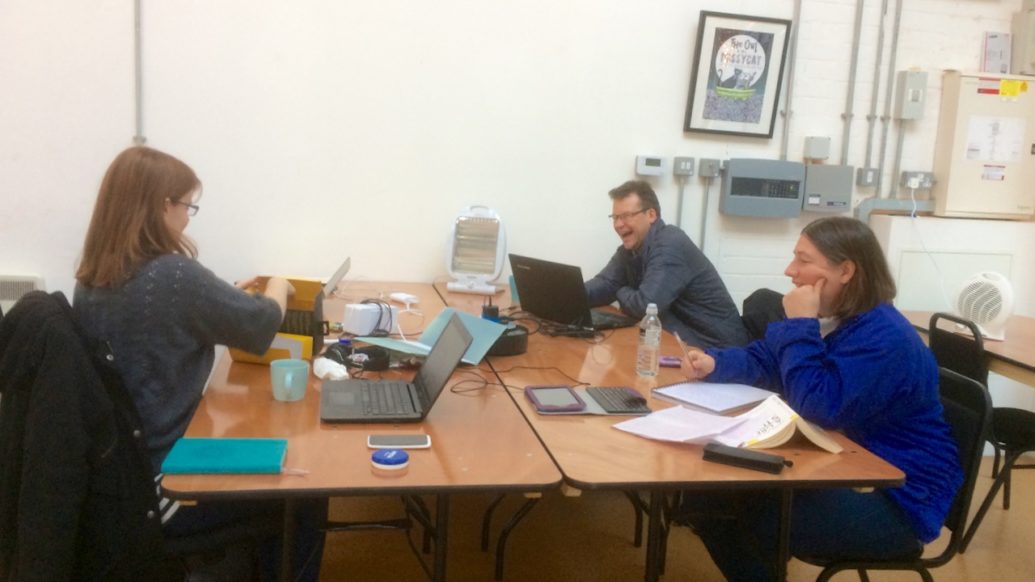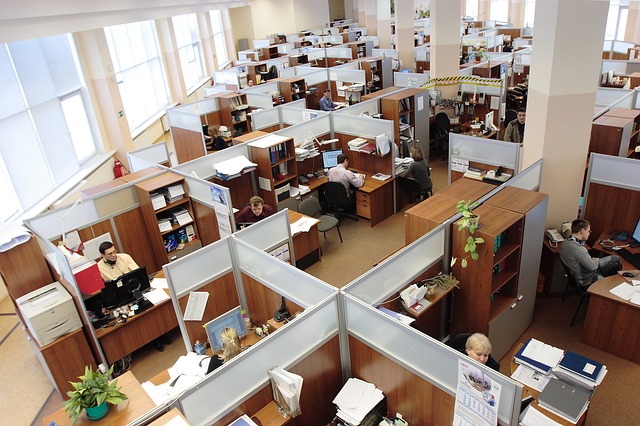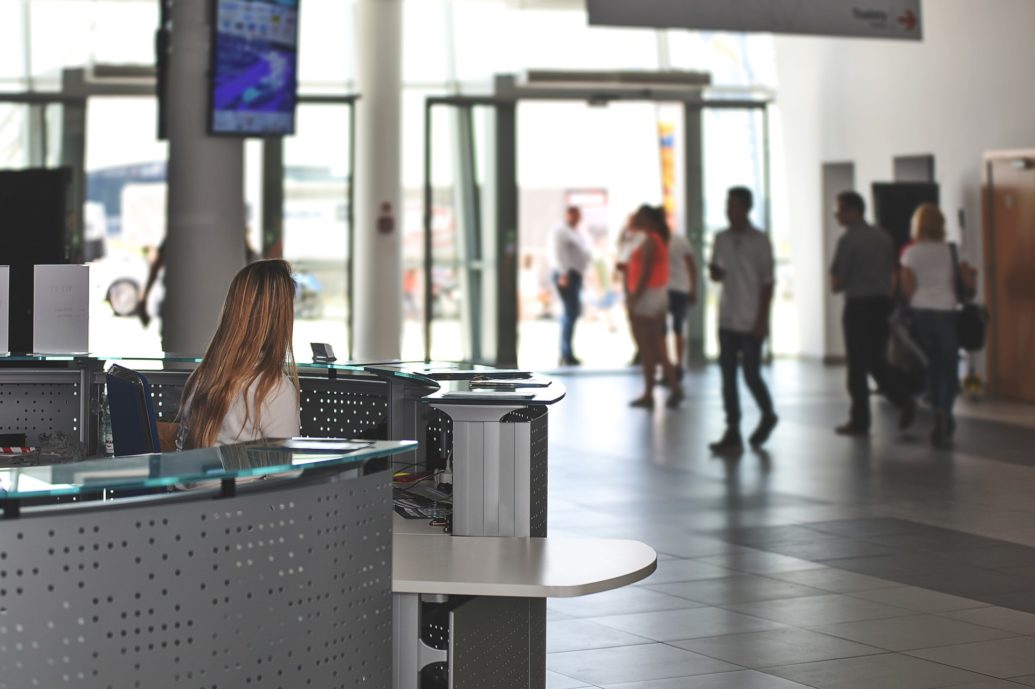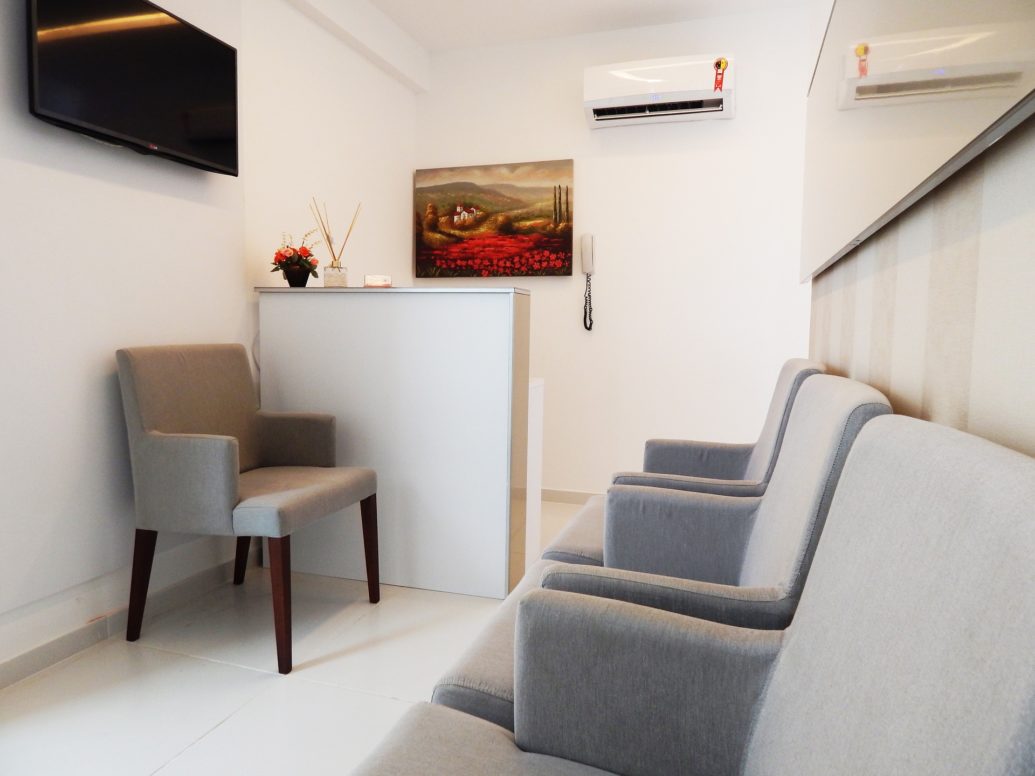Do you work from home? Are you happy working from your home office every day? If not, you may imagine renting a wee room with a desk and file cabinet. But if you’ve looked into it seriously, chances are you’ve discovered that traditional office rental, especially in the city centre, is prohibitively expensive and high-risk.
Perhaps you’ve started looking into other options and found a confusing array of business centres, managed offices, entrepreneurial accelerators, desk rentals and coworking spaces. What are the options available to independent workers and start-ups, and which is the best choice for you?
Before we jump in, a few helpful definitions…
- A hotdesk is a borrowed work area. It may be a seat at a shared table or – preferably – a decent-sized workspace you can use for the day or part of the day, then leave clean and tidy for the next person.
- Desk rental means you have possession of a particular desk, probably in a shared but fairly secure space, and probably including at least one lockable drawer.
- Office rental means you have a private, lockable room, either for yourself alone or for your workgroup.
Here are definitions for five types of flexible offices you’ll run across in any good-sized city. These terms are not always used consistently, but they can serve as a starting point in your search.
1. What is a Coworking Space?
Coworking spaces are shared offices, and good coworking spaces become focal points for dynamic communities of independent workers. A coworking space may have rental desks, hotdesks or some of each. Some coworking spaces also offer private offices for workgroups.

You’ll find a group of peers and collaborators – other independant and remote workers – at a coworking space
Coworking spaces are often designed to be temporary or part-time offices for independent professionals who also work from home or who are visiting the area. A good coworking space will have shared resources like high speed broadband, meeting rooms, printers, large monitors, drinks and snacks. They are usually membership organisations with monthly fees, and many also offer day passes. Some have desk or office rental on short term contracts as well.
Normally, a coworking space based on hotdesking is the most flexible and least expensive option for an independant worker, and it’s a good option in other ways, too. Hotdesks mean you will not always sit next to the same people. You will make more business connections and you won’t have to pay for a full-time desk that you don’t plan to use for 40 hours a week. Hotdesking is the traditional way to do coworking; it’s how most of the well established Silicon Valley and big city spaces are organised.
If you work alone as a freelancer, consultant, or single-person start-up, then a coworking space is probably your best choice.
2. What is a Business Accelerator?
A business accelerator is a special program designed to help launch start-ups. Business accelerators may be managed by educational institutions, government organisations, or private sector sponsors.

You’ll find inspiration, education and possibly opportunities to connect with investors at a start-up accelerator
For example, Glasgow-based Entrepreneurial Spark, the UK’s largest accelerator, is partially supported by Lord William (Willie) Haughey, the founder of City Facilities Management. E-Spark’s largest and oldest accelerator program is based in City’s headquarters on the south side of Glasgow. Nottingham has at least one accelerator too: the Hive is sponsored by Nottingham Trent University.
Entrepreneurs who have been accepted into an accelerator program can usually work onsite in a coworking-type environment for some set amount of time for free. The catch? Accelerators are usually aimed at entrepreneurs with business ideas that have the potential to grow into large companies, and admission is competitive. These programs exist partly to give entrepreneurs access to investors, and not everyone wants or needs investors.
3. What is Short Term Desk Rental?

Short term desk rental can place you into a large company’s cubicle farm. Woohoo?
Desk rental is sometimes offered by established companies who have more office space than they need. They make the extra desks in their leased offices or dedicated buildings available to start-ups and independent workers on a short-term basis. Although it can be an affordable way to get a desk away from home, mixing independant workers into random companies’ workplaces can be a bit apples-to-oranges.
4. What is a Managed Office or Serviced Office?

You’ll find administrative support and office space on flexible terms at a managed or serviced office.
A managed office or serviced office is a suite of offices available on short term leases, often with a shared receptionist who can answer phones for all the companies based there, and they may offer other shared administrative services as well. Managed/serviced offices are generally more expensive than coworking spaces, and they usually provide office spaces for lease, although they may also offer desk rental and/or hotdesking.
Managed/serviced offices are ideal for small companies and start-ups with several people working together full time, but that are not yet large enough to require a dedicated support staff. They are also a good choice for professionals, like solicitors and therapists, who spend a large portion of the day meeting privately with clients and who can benefit from the services of a receptionist.
The hotdesking facilities in serviced/managed offices, when they exist, tend to be an afterthought and rarely host a vibrant community of workers.
5. What is a Business Centre?

You’ll find office space on flexible terms at a business centre.
A business centre may be a managed or unmanaged suite of offices. In many cases, a business centre is simply a commercial space subdivided into rooms that can be leased separately, with shared sanitary facilities and perhaps a kitchenette and meeting room as well.
A business centre may offer a combination of services, and it’s best to check the website or call to find out what’s included. It may or may not include provision for desk rental and hot desking. Business centres are often less expensive than managed/serviced offices because they don’t necessarily have on-site administrative support.
In general, business centres and managed/serviced offices are good places for start-ups, especially start-ups with more than one full time, local worker. Accelerators are a good choice for both start-ups and lone entrepreneurs. The term “coworking space” gets thrown around a lot these days and is sometimes used to mean ‘serviced office’ or ‘business centre,’ but a real coworking space provides desks for independent workers as a major feature. Business centres and serviced/managed offices may or may not offer hot-desking and desk rental.
So, there’s your starting point. Now, you can start Googling, checking websites, making calls and looking at your options. Working away from home at least part of the time has physical and psychological benefits, and if your instincts are telling you it’s the right thing to do, then don’t wait. Hit the street and find your perfect office away from home.


Pingback: Looking for a Workspace? Ask Yourself This First. – MinorOak Nottingham Coworking